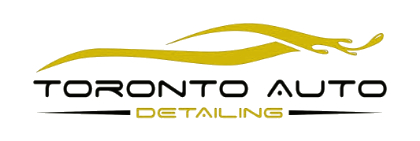PPF Car Paint Protection Services
PPF stands for Paint Protection Film, which is a clear, durable, and self-healing film applied to the surface of a vehicle’s paint to protect it from various forms of damage. Commonly used in the automotive industry, PPF safeguards the paintwork against rock chips, scratches, bug splatters, bird droppings, and other environmental hazards.

The Primary Purpose of PPF
The main goal of PPF is to provide an additional layer of protection for the vehicle’s paint, preserving its appearance and value. The film is typically made of polyurethane or similar materials that are resistant to impacts. It absorbs and disperses the energy of small objects hitting the surface, preventing damage to the vehicle’s exterior.
The Application Process of PPF
The process of applying PPF involves carefully cleaning and preparing the vehicle’s paint surface before applying the film in sections. Professional installation requires precision and expertise to ensure a seamless, bubble-free application with no visible edges. Once applied, the film provides an invisible barrier that resists staining, yellowing, and discoloration over time.
Self-Healing Properties of PPF
One of the most appealing features of PPF is its self-healing properties. The film has the ability to absorb minor scratches and swirl marks through heat activation or exposure to sunlight. This means that small surface imperfections can disappear over time, keeping the paintwork looking fresh and pristine.
The Longevity of PPF
While PPF is not a permanent solution and may need replacement after several years, depending on the quality of the film and the wear and tear it endures, it is generally considered a worthwhile investment for protecting a vehicle’s paintwork and preserving its visual appeal.
Why Should You Consider Applying PPF?
There are several compelling reasons to apply Paint Protection Film (PPF) to your vehicle:
Protection Against Physical Damage
PPF offers protection from physical damage such as rock chips, scratches, and abrasions. Acting as a sacrificial layer, the film absorbs impacts and prevents the damage from reaching the paint surface.
Preserves the Car’s Appearance
PPF helps maintain your car’s original paint finish by preventing fading, discoloration, and oxidation caused by UV rays. It also guards against damage from environmental factors such as bird droppings, bug splatters, and road debris.
Self-Healing Properties
Many PPF products are designed with self-healing properties, which allow them to repair minor scratches and swirl marks. The film’s composition enables it to revert to its original form when exposed to heat or sunlight, making small imperfections disappear over time.
Enhances Resale Value
Applying PPF to your car can preserve its resale value by keeping the paint in excellent condition. The protective layer prevents the need for costly paint touch-ups or repairs, which can increase the car’s appeal to potential buyers.
Easy Maintenance
PPF is easy to maintain compared to bare paint surfaces. Regular car wash products can be used, and the film’s hydrophobic properties help repel water, dirt, and grime, making it easier to keep your car looking clean and shiny.
Longevity of Protection
PPF is designed to be durable, offering long-term protection for your vehicle’s paintwork. High-quality films are resistant to yellowing, staining, and degradation, ensuring your car remains protected for years.
Conclusion: The Worth of PPF
While PPF requires an initial investment, many car owners find it highly beneficial due to the long-term advantages it provides. From preserving the vehicle’s appearance to offering peace of mind, PPF ensures your car is protected from potential damage while maintaining its visual appeal. Consult with a professional installer who can assess your needs and recommend the appropriate PPF solution for your car.
